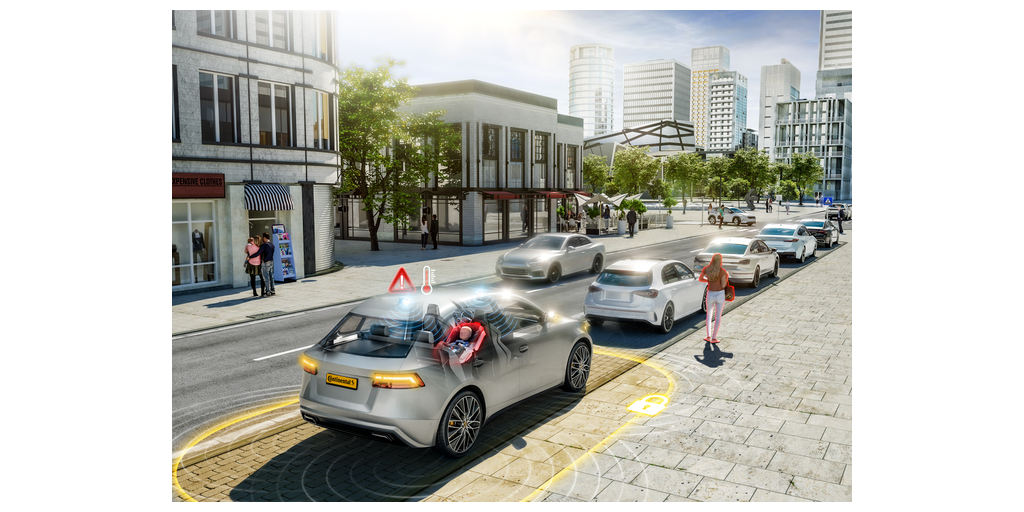GadgetWheels
Continental debuts child-presence tech for cars
Child-presence detection technology senses children left behind inside a vehicle and triggers a warning.
Tyre technology company Continental has added a potentially lifesaving Child-Presence-Detection (CPD) function to its digital access system.
When outdoor temperatures reach 26 degrees Celsius, in-car temperatures can reach over 43 degrees within half an hour. This has the potential to be life-threatening for young children left behind in vehicles, as researched by University of Georgia. Consequently, nearly 40 children a year in the USA die from heat stroke in vehicles, according to the National Highway Traffic Safety Administration (NHTSA).
Continental’s Child-Presence Detection function built into its CoSmA system uses ultra-wideband (UWB) technology to detect a child left alone in the vehicle cabin and sends out a warning within seconds. The CPD function also addresses vehicle manufacturers’ needs to meet in-cabin safety targets in anticipation of the upcoming Euro NCAP safety rating and US regulations, which are striving for new child safety requirements in the vehicle by 2025.
“We were first to market with the ultra-wideband for digital vehicle access. Now we can utilise this same technology to potentially save children’s lives by detecting if they were left behind in a vehicle. An innovative product that began with convenience now has lifesaving capabilities,” said David Muscat, Segment Chief Engineer, Architecture and Networking Business Area, Continental North America.
Ultra-wideband: Detecting even the tiniest motion
The CPD function is seamlessly embedded into the already existing CoSmA UWB Digital Access Solution, which enables drivers to use their smart phone or device as a car key for hands-free access. To detect children that are left behind, the UWB system works in a “reflective-mode.” This means it receives its own transmitted UWB signals back from micro-motions of an object. By detecting a change in frequency or phase of a returned signal, distance and velocity of the moving object can be measured. Even the tiniest motion, such as the movement of a child’s chest while breathing, can be detected by the sensors.
Based on respiration rates and micro-body-movements, the CPD with UWB system can classify passengers as infants, children, or adults. If infants or children are left behind in the car, the CPD system can send an audible, visual, or haptic alert to the driver in as little as ten seconds. The technology is also able to detect infants and children in any seating position, even if they are covered by a blanket or hidden in a cabin-footwell.
The use of CoSmA UWB transceivers, not only for access solutions but also for CPD, makes additional hardware redundant and allows for overall system cost savings and simplification. As a pioneering solution, CoSmA continues to enhance and innovate user experience in vehicles of the digital age.
CoSmA UWB revolutionised the classical car keys
Continental brought the digital access solution technology CoSmA using ultra-wideband into the market in 2021 by digitalising the car key and integrating the access function directly into the driver’s smartphone. With this latest version, working with ultra-wideband (UWB) technology, CoSmA offers maximum convenience combined with significantly improved security. “The initial digital access solution feature, which makes life more convenient for users, can now be lifesaving as well,” said Muscat. “Continental has combined functionality and safety with this technology and we’re proud to be on the cutting edge of future safety requirements.”
Continental develops pioneering technologies and services for sustainable and connected mobility of people and their goods. Founded in 1871, the technology company offers safe, efficient, intelligent and affordable solutions for vehicles, machines, traffic and transportation. In 2022, Continental generated sales of €39.4-billion and currently employs around 200,000 people in 57 countries and markets.

















